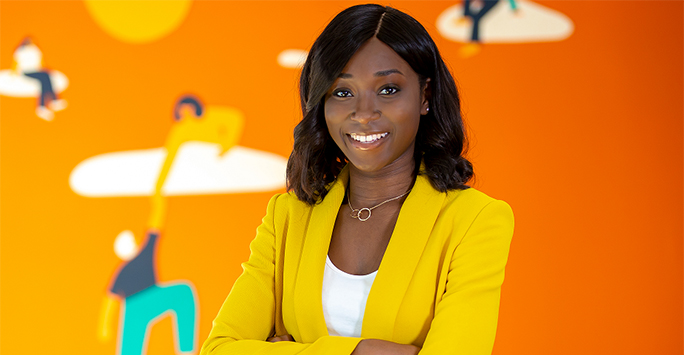Diversity and Inclusion in the Workplace
Posted on: 24 June 2020 in Graduate stories

Diversity and Inclusion is high on the agenda for many employers. Here, we ask two recent graduates what diversity means to them personally and how it is supported by the organisations they work for.
Toni Adentan is currently a Partner Manager at Facebook Dublin and she graduated with a BA Marketing from the University of Liverpool in 2017. Toni has a passion for improving social mobility, supporting a number of initiatives for young people across London and Dublin.
Diversity is a word we hear so much these days, but what does it mean to you?
Diversity to me represents a celebration. A practice of recognizing, valuing and championing all that we bring to our teams and workplace as individuals. This celebration is empowering, particularly for traditionally underrepresented and marginalized groups, and can be leveraged to make teams and companies stronger. Each of our unique experiences and perspectives can and should be seen as capable of adding value.
Tell us about how diversity and inclusion is supported at Facebook. Why is it so important in the workplace?
One of the main ways Facebook support diversity and inclusion in the workplace is through Resource Groups. These are inclusive groups that bring together employees with shared experiences for the purpose of providing community support. I am part of Women@ and Black@ and identify as an ally for other groups. Representation matters, and initiatives like these are important in the workplace to foster a sense of belonging.
Have you been involved in any diversity-focused project or initiative which you particularly enjoyed?
I was one of the project leaders for Facebook’s European launch of Elevate. Elevate is a program created by employees dedicated to supporting the success of minority entrepreneurs and businesses through in-person ads training workshops and mentorship. This was a highlight for me as it matched my passion for social mobility and economic advancement with my core role in digital advertising.

Antonia Efremidoo is currently graduate Software Engineer at THG with a BSc in Physics with Astrophysics. Antonia’s main areas of interest lie with front end development and design.
Diversity is a word we hear so much these days, but what does it mean to you?
I think, for me, diversity is something that happens when exclusive behaviour is honestly recognised and addressed. Feelings of misrepresentation and inequality are prevalent. I think that only when our behaviour as a society moves to rectify this will the ceiling feel lifted to allow space for a more diverse perspective.
Tell us about how diversity and inclusion is supported at THG.
THG has this programme called Accelerator which, in a nutshell, is 6 months training designed to close the digital skills gap. It’s open to anyone with a passion for tech and a proven relevant skillset. The 2019 cohort included mathematicians, physicists and doctors from multiple fields. We’d all experienced coding in some way, shape or form and had realised we enjoyed it. About 42% of us were women too. Compared with the industry average of 19% female, this is a substantial difference.
I think the underlying reason for this is that tech isn’t a job that girls are encouraged to pursue when they’re at school and so, not many of us do Computer Science degrees. This has had a knock-on effect in industry in the form of a gender gap. However, there are plenty of women excited by the prospect of a career in tech and Accelerator has proven it. Opening up the opportunity later, like THG has done, is definitely one of the ways we can move to diversify the tech workforce.
Why is it important in the workplace?
We spend most of our time at work. Ensuring everyone feels safe and supported here has a huge impact on daily life. It’s also, arguably, one of the most difficult places to feel comfortable speaking up on such sensitive topics. Breaking that barrier in the workplace I think is so necessary in opening up the conversation elsewhere.
Have you been involved in any diversity-focused project or initiative which you particularly enjoyed?
The standout one for me is the Career Confidence for Women programme set up by Careers & Employability. It’s basically been designed to offer support to female students in pursuing career prospects by pairing them up with an industry mentor. The idea being that it would be hugely beneficial to bridge the gap between uni and employers. I think I’ve found it just as beneficial as the students! Over the past few months in lockdown especially, the programme has been a real source of positivity. The continuity of it has meant there has been time to get to know my mentee (she’s great), and understand what help or ideas would be most valuable too.
Keywords: Case studies , Explore.